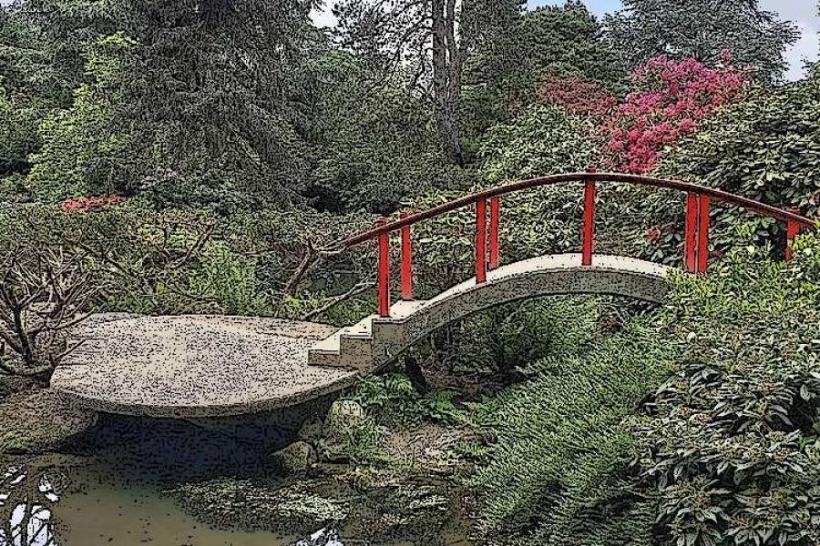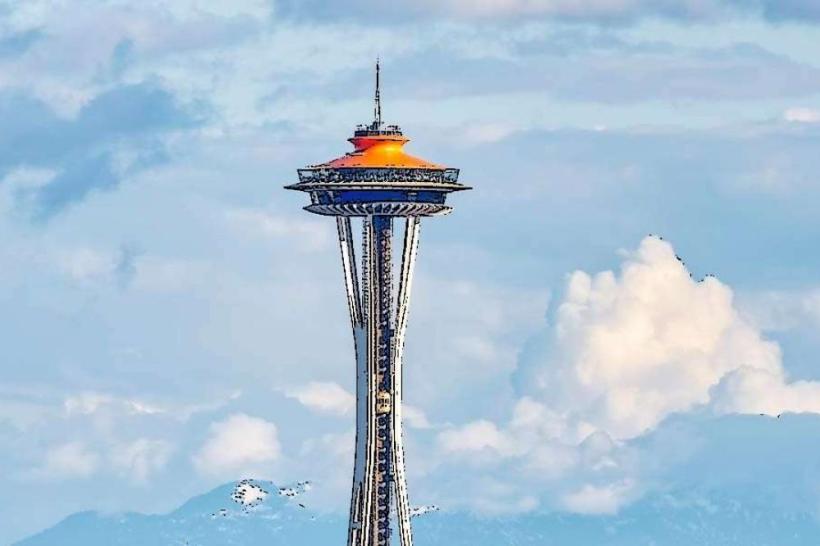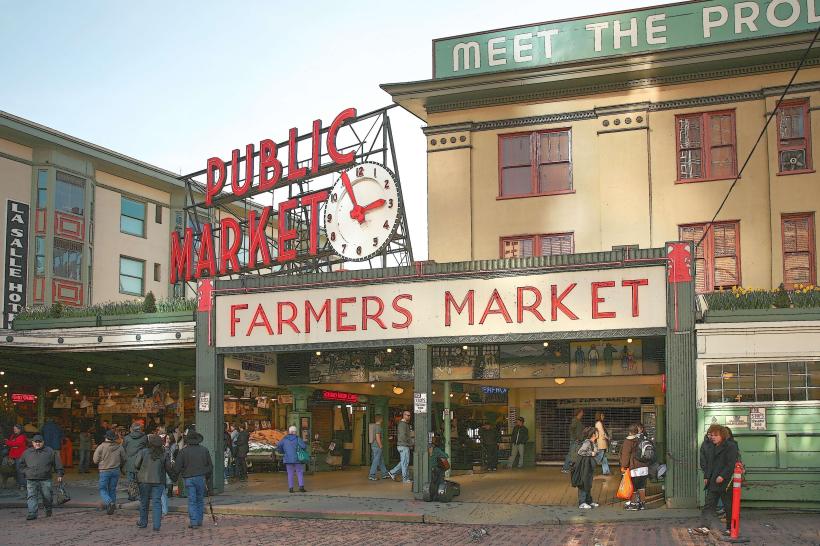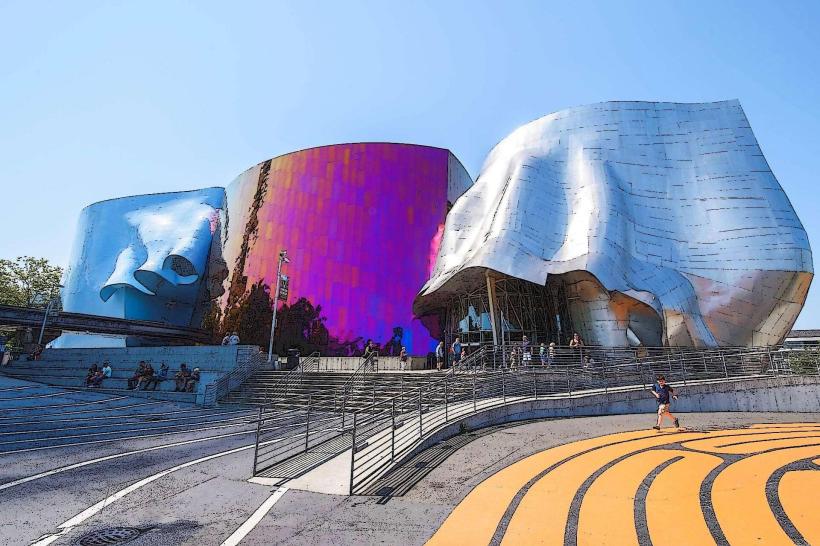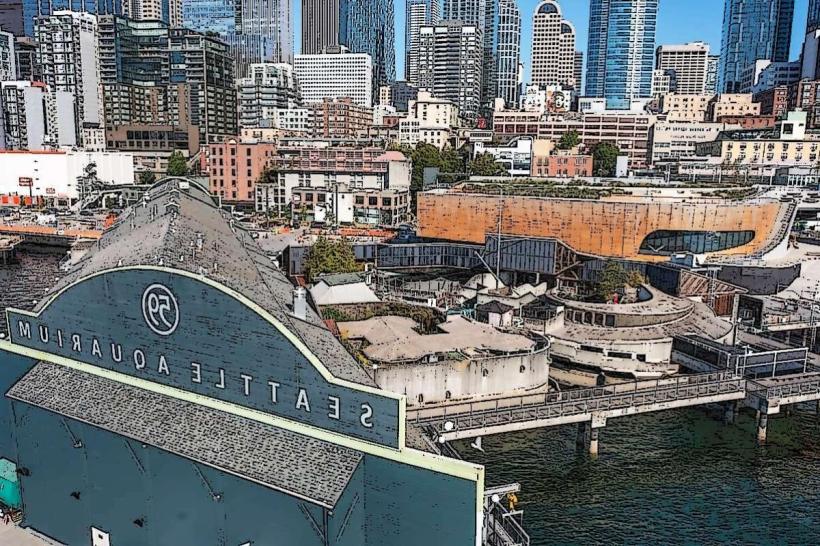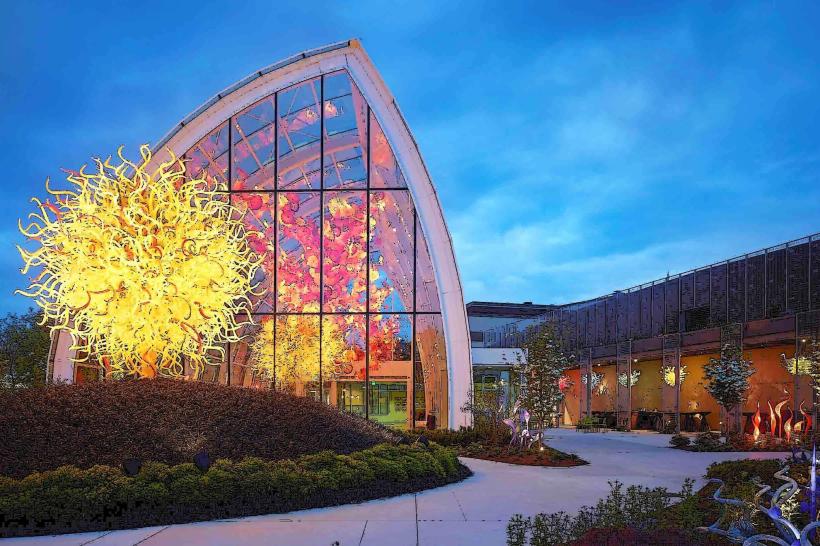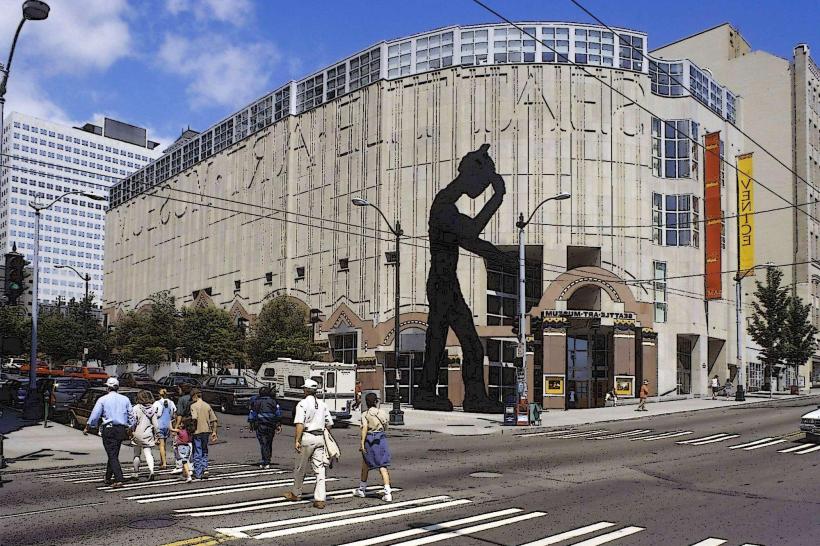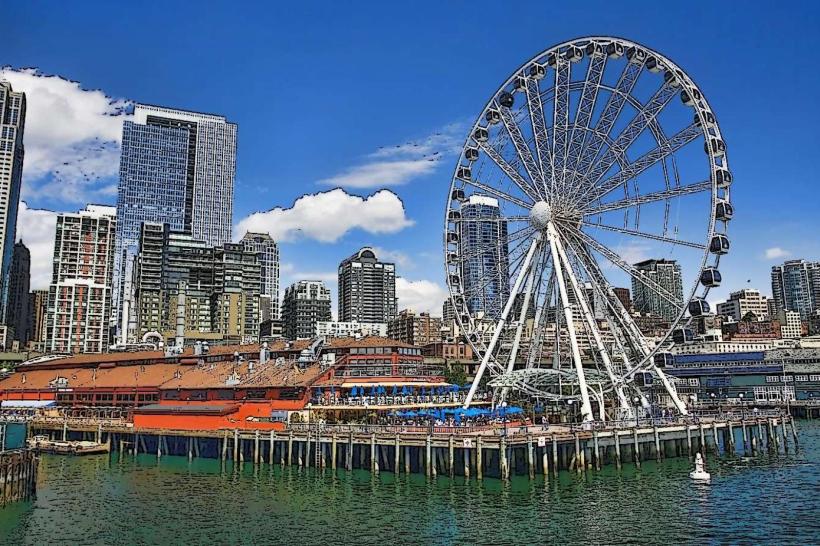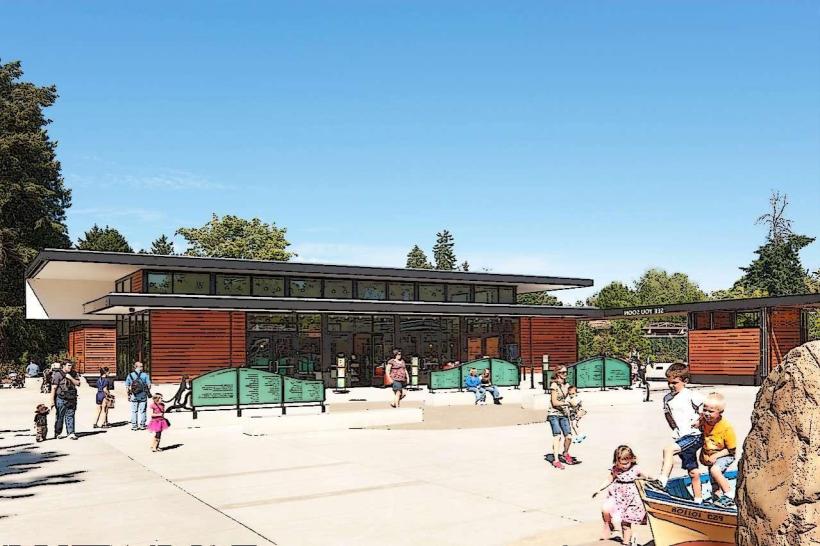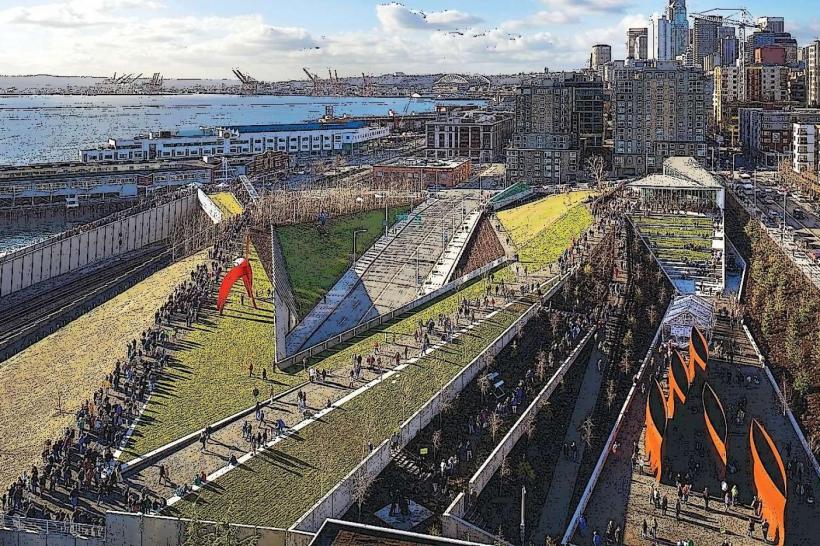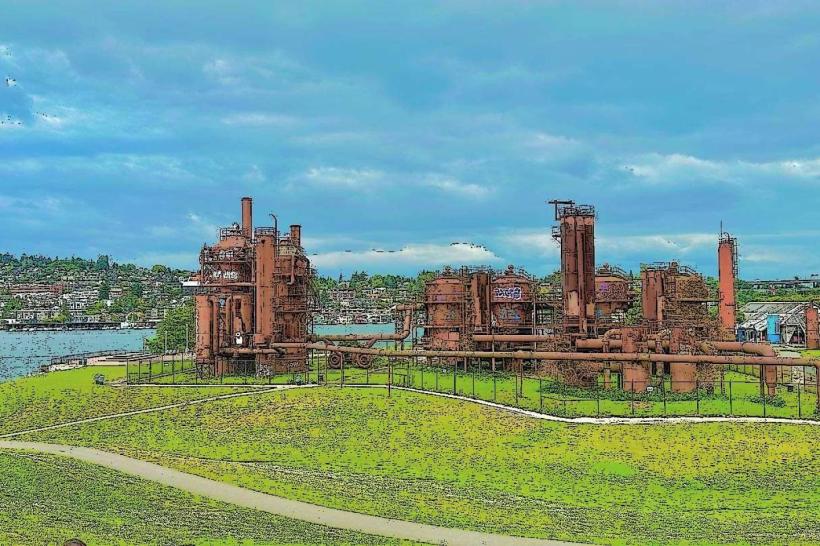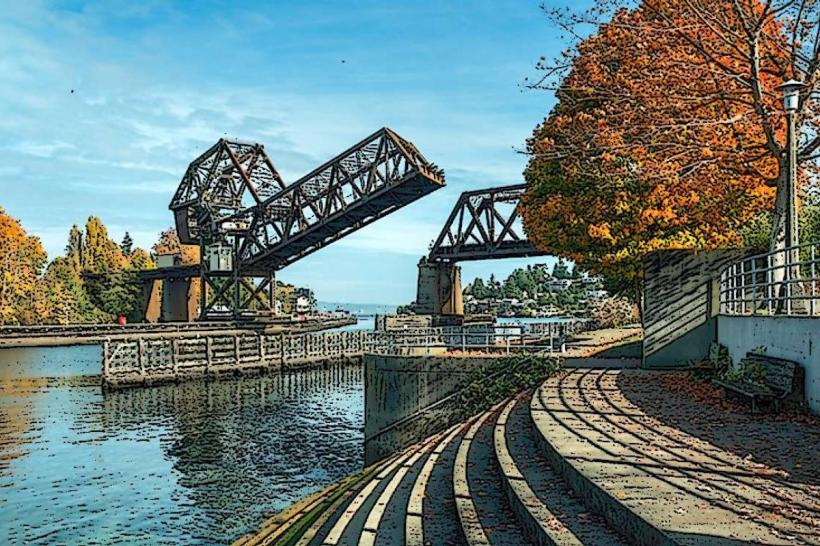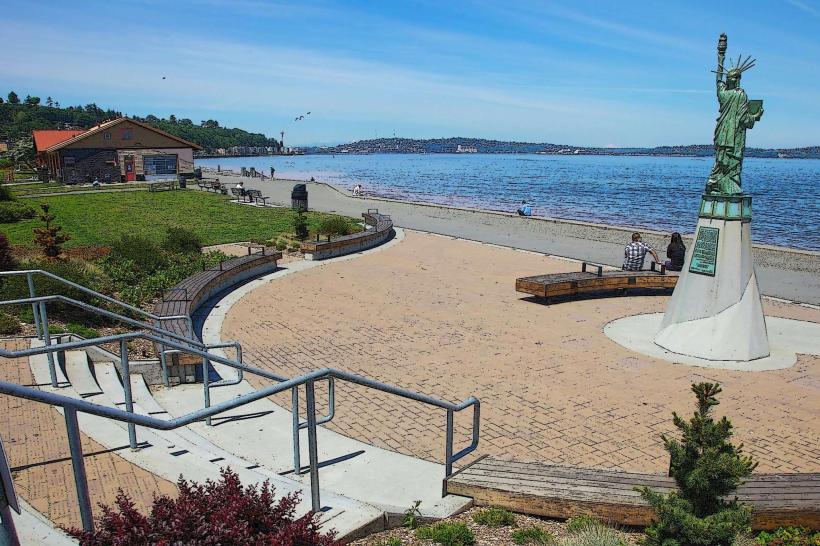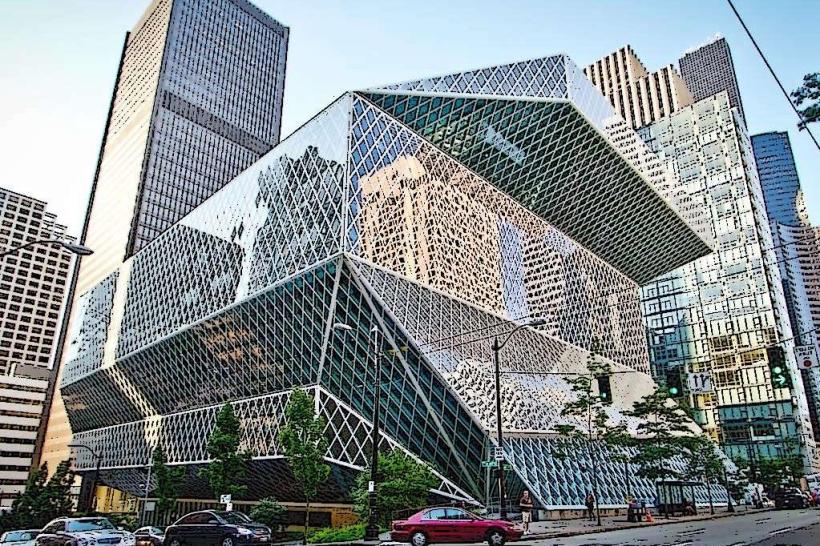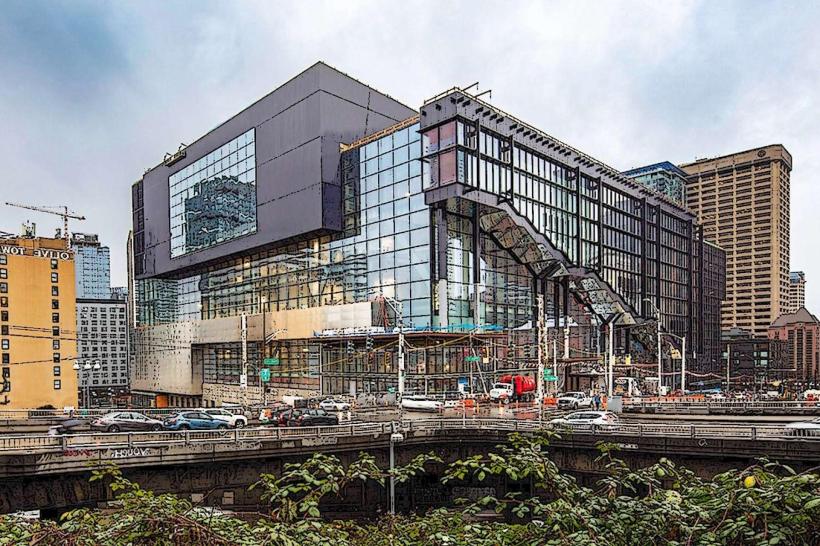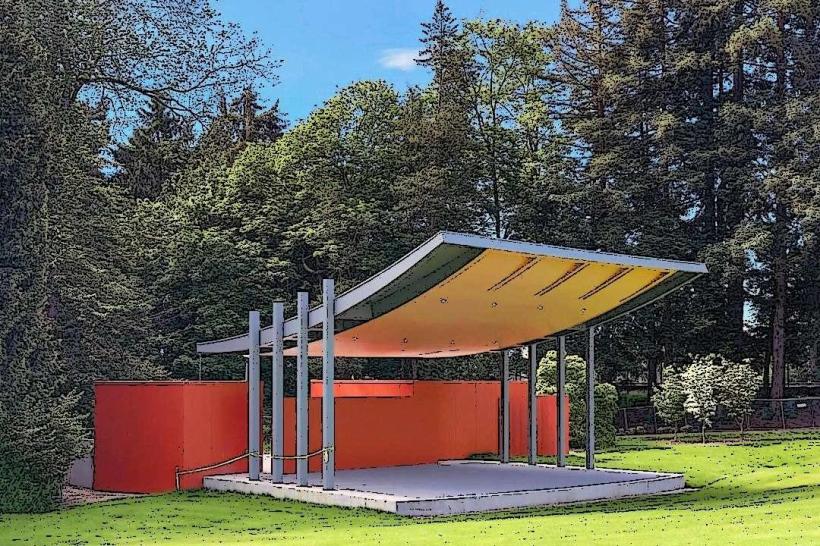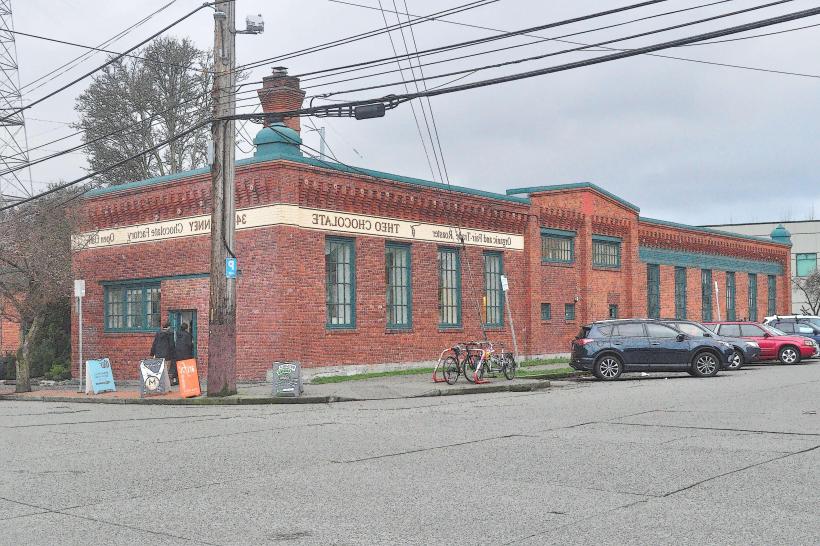Information
Landmark: Fremont TrollCity: Seattle
Country: USA Washington
Continent: North America
Fremont Troll, Seattle, USA Washington, North America
The Fremont Troll is a striking and whimsical public art sculpture located beneath the north end of the Aurora Bridge (officially the George Washington Memorial Bridge) in Seattle’s Fremont neighborhood. It has become one of Seattle’s most beloved landmarks and a symbol of the city’s quirky, creative, and community-driven spirit.
Origins and Creation
The idea for the Fremont Troll emerged in 1989 as part of a local effort to revitalize and clean up an underused, neglected space beneath the Aurora Bridge. This area had become an unsightly spot prone to illegal dumping and other undesirable activities. The Fremont Arts Council, a community arts organization, organized a public art competition to transform the space into a cultural attraction.
The winning design was created by a team led by Steve Badanes, a professor of architecture at the University of Washington, along with his architecture students Will Martin and Ross Whitehead, and artist Donna Walter.
The sculpture was constructed over about three months in 1990. It is made of steel rebar and wire covered with ferrocement, a strong, durable material often used in boat building and architectural projects.
The Troll stands roughly 18 feet (5.5 meters) tall and weighs around 13,000 pounds (6,000 kilograms).
Design Features
The sculpture depicts a giant, gruff troll crouching under the bridge, clutching an actual Volkswagen Beetle in its left hand.
The car is partially embedded in concrete and was originally a real 1962 Volkswagen Beetle. Inside the car was a time capsule containing a plaster bust of Elvis Presley and the ashes of a friend of the sculptors, adding a layer of playful mystique. However, the bust was stolen after an act of vandalism.
The troll's rough texture and exaggerated facial features give it a somewhat menacing yet intriguing look, blending fantasy and urban grit.
Community and Cultural Impact
The Fremont Troll quickly became more than just a piece of public art; it turned the previously unsafe, abandoned space under the bridge into a vibrant and safe gathering spot.
It helped deter illicit activities beneath the bridge and encouraged community involvement and pride in the neighborhood.
Volunteers and local residents regularly clean and maintain the sculpture, removing graffiti and repairing damage, which reflects the community’s commitment to preserving this unique landmark.
In 2005, the city officially renamed the street beneath the bridge to Troll Avenue N, recognizing the sculpture's importance to the area’s identity.
Symbolism and Popular Culture
The Troll embodies the Fremont neighborhood’s reputation as “The Center of the Universe,” known for its artsy, offbeat vibe and independent spirit.
It symbolizes Seattle’s blend of natural beauty, folklore, and urban culture.
The sculpture has appeared in numerous films and television shows, contributing to its iconic status. Most notably, it was featured in the 1999 teen romantic comedy 10 Things I Hate About You, where it served as a memorable backdrop.
It also appears in other pop culture media, including the films Sleepless in Seattle and Death Note, as well as the video game Life is Strange.
Visiting the Fremont Troll
Location: The Troll is situated at the intersection of North 36th Street and Troll Avenue North, directly beneath the Aurora Bridge’s northern end.
Visitors typically reach it by foot via nearby streets such as North 34th or 36th Street, often combined with a visit to Fremont’s Sunday Market or other local attractions.
While there is no dedicated parking lot at the site, nearby street parking and public transit options are available.
The area is accessible and popular with tourists, families, photographers, and locals alike, who enjoy taking photos with the Troll and exploring the surrounding Fremont neighborhood.
Fun Facts and Trivia
The Volkswagen Beetle held by the Troll is permanently fixed and cannot be removed.
The Troll’s creation budget was modest, around $15,000, a testament to creative community art on a limited budget.
The sculpture has inspired merchandise and artistic tributes, including a licensed Chia Pet version released in 2011.
Despite occasional vandalism, the Troll remains a cherished part of Seattle’s public art scene and a symbol of the neighborhood’s creative resilience.
Summary
The Fremont Troll is a striking example of community-led public art that has transcended its original purpose to become a cultural icon and symbol of Seattle’s artistic character. More than just a sculpture, it represents the transformation of urban space through creativity, bringing life and identity to an overlooked area. Visitors to Seattle often seek out the Troll as an essential experience, drawn by its playful, mysterious presence and the unique story behind its creation and continued preservation.

